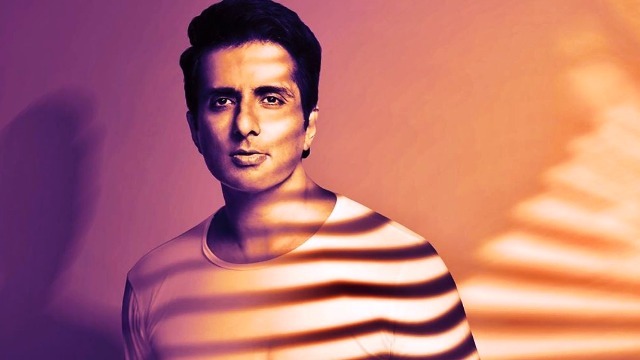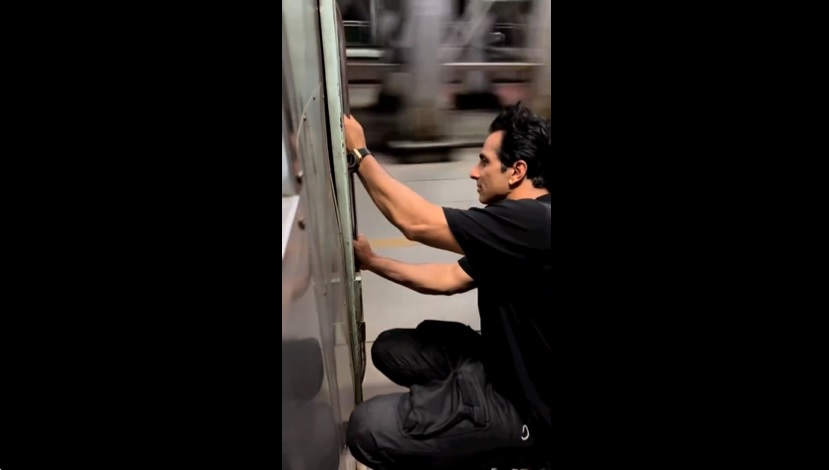
Allocation of medical resources during an emergency should solely be on the basis of triaging. Only doctors can decide who has priority.
In the current situation, politicians have completely taken over hospital admissions and undeserving people are occupying ICU and oxygen beds. Sonu Sood is probably doing what he doing from his heart and if he is doing it for the poor and deserving, one should not have any issues. But the real culprits are politicians and persons in the government with influence.
Sonu Sood has tweeted his good deeds’ score for Wednesday:
1.) ICU beds demanded= 422
Provided = 196
2.) Oxygen asked for = 127
Provided = 93
3.) Remdesivir requests = 527
Provided= 83
He wished he could have fared better and helped more people. He has promised to go further and arrange still more help in the days to come. The Good Samaritan undeniably has his heart in the right place. He has been persisting with his charity work since the beginning of the pandemic in 2020. But arranging buses for the migrants to return home, or paying for cataract or any other serious operation is one thing, and arranging for ICU beds, oxygen and life-saving drugs is quite another.
It should be appreciated that Sonu Sood or any Ram, Rahim or Robert for that matter, are not creating new/fresh resources or providing any service by ‘re-allocation’ of these urgently required life-saving items like Oxygen cylinders, ICU beds or essential drugs like Remdesivir. In fact, by exerting their influences, and interfering in the free market/ systemic operations, they might even be unwittingly transferring these essential desirables from the most needy patients (who might be lacking access and visibility), to those who have the capability to connect better, or possess high-level contacts (and who might be pre-empting risks and unwittingly end up stocking up oxygen or drugs, or occupying beds, despite not in dire need).
On a single window, working sans external factors, one would expect more judicious allocation and application of medical aid. But such name-dropping, as is in vogue, ends up creating panic, and sends clear message to the lowliest that he or she has no hope or recourse or to basic treatment.
Imagine you are in a position to allot ICU beds or drugs, and provide them to someone who manages to connect with you directly, through some friend, or a WhatsApp Group, or on Twitter. It does raise a question that in these times of insufficient supply and very heavy demand, are you selecting a beneficiary of your choice, and denying the same resource to someone who might be standing in the queue waiting helplessly and patiently for his turn? In the month of April, this is a valid concern. This ethical dilemma does bother many conscientious doctors, officers and managers. But good Samaritans (and some publicity hunters) seem to be having scant regard for this concern.
Rest assured that these scant resources like beds or oxygen or drugs shan’t go waste (vaccines have been wasted!). Someone who is in need shall find and avail of them. But should he be denied only because he is not as well-connected as someone else might be?
In any ideal system, access and visibility should not become factors in getting help. But it can be argued that our system is far from ideal. In times of such scarcity, what is the moral dimension behind helping someone might be known to you? Is it better than doing nothing and letting the patients or his relatives fend for themselves? Anything is definitely better than flooding social media with unverifiable sources and plethora of contact numbers that never get picked. That is sheer waste of time and energy for everyone concerned.
I also understand that the real-time information on resources’ availability and location are not quite available in our ecosystem. As such, properly using social media and seeking help from ‘people you know’ might aid in speedier and more efficient availment. In the end, if a horse is willing to rush towards the river, on being properly directed, it displays his will to live. I would refrain from invoking Darwin’s Survival of the Fittest because that would be akin to justifying nepotism and influence-peddling.
People are trying to help each other. Rather than arriving at a conclusion, I would rather leave the mighty, the powerful and the resourceful to open-mindedly consider this aspect, and decide on the call of conscience. Life might provide opportunities for deeper analyses, if we make it through these perilous times.
About the Author:
Abhinav Pancholi is a sports enthusiast and a lover of literature. His views might come across as vehement but that goes with the territory.
Disclaimer:
Disclaimer: The opinions expressed in the article are the personal opinions of the author. The facts and opinions appearing in the article do not reflect the views of Pragativadi and Pragativadi.com does not assume any responsibility or liability for the same.






